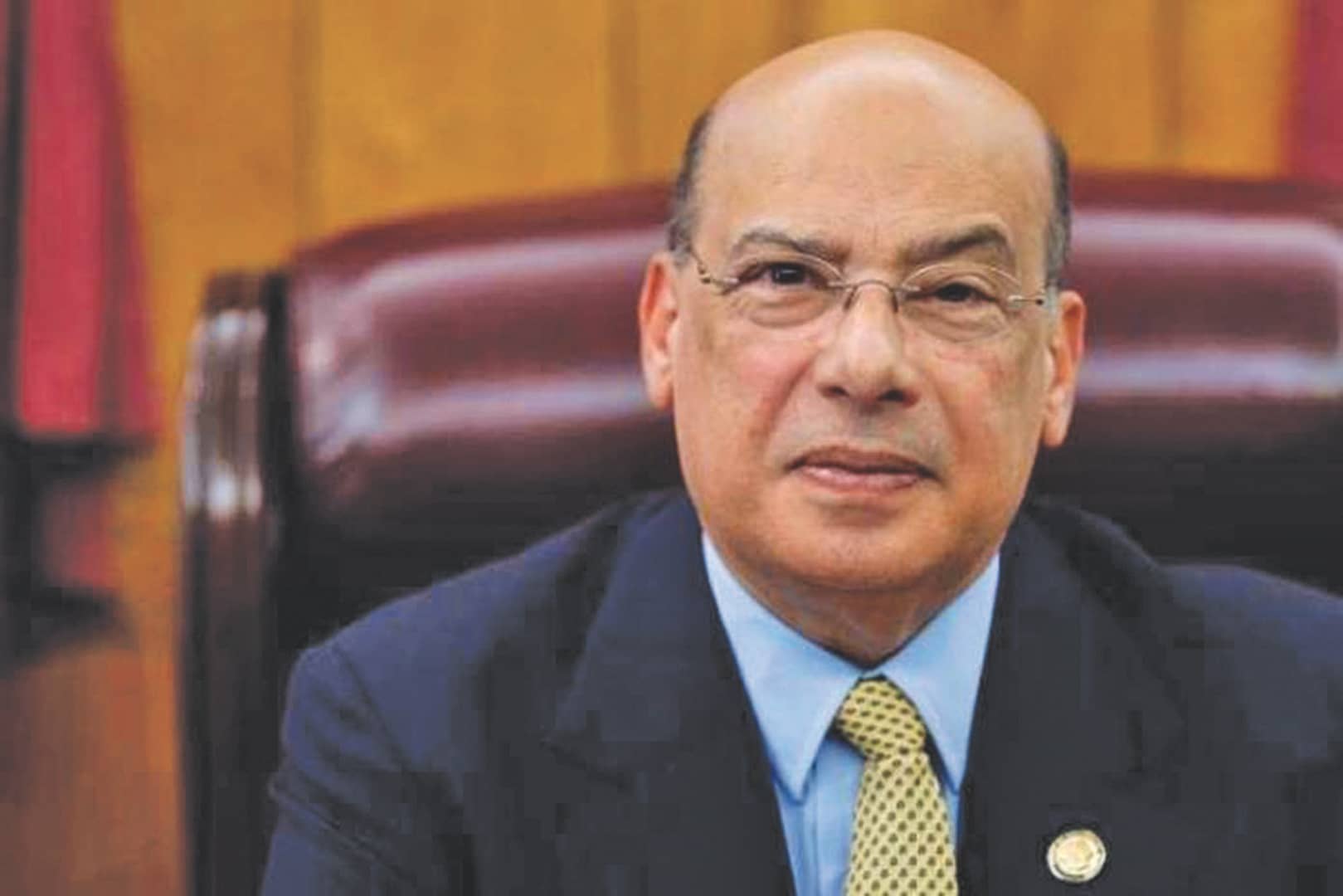
By Sir Ronald Sanders
(The writer is Ambassador of Antigua and Barbuda to the United States and the Organization of American States. He is also a Senior Fellow at the Institute of Commonwealth Studies at the University of London and at Massey College in the University of Toronto. The views expressed are entirely his own)
The meeting between U.S. Secretary of State, Mike Pompeo, and the Foreign Ministers of seven Caribbean countries, gave rise to many questions, but the U.S. seeking to “divide CARICOM” should not be one of them.
External forces can try as they wish to divide the members of the 15-nation Caribbean Community (CARICOM), but only those Caribbean nations can cause the division.
So, there should be no blame attributed to the U.S. government for “dividing CARICOM” by the invitation to foreign ministers of only six of its 14 independent member-states to attend a January 22 meeting, hosted by the Jamaica government. The U.S., like every other government in the world, has the perfect right to invite to a meeting any governments with which it wants to confer.
The issue – if, indeed, there is an issue – is with those CARICOM governments, particularly the host government, that agreed to the meeting without insisting that no CARICOM government should have been excluded from a rare opportunity to consult a U.S. representative as high-level as the Secretary of State.
After all, the meeting was held in the Caribbean, under the auspices of a CARICOM government. It was not held in the U.S. under the control of the U.S. government as occurred when President Trump invited five Caribbean leaders to Mar-a-Largo, his estate in Florida.
At the very least, it was within the Jamaica Prime Minister’s capacity to advise the U.S. government that it would be both prudent and beneficial for representatives of all 14 independent CARICOM governments to be invited to what Mr. Pompeo’s own State Department described as “a roundtable discussion” with the named foreign ministers of the seven Caribbean countries. It should be noted that, in addition to the six invited foreign ministers from CARICOM countries, the Dominican Republic was also an invitee as it was to the Mar-a-largo gathering with President Trump.
In the past, whenever any CARICOM government has hosted a leader of a major nation, it has been the general practice to invite all CARICOM governments to be present for discussions. The wider CARICOM meeting with such leaders did not preclude a bilateral meeting by the host government with the invited leader. Indeed, it was the norm that a bilateral meeting would be held between the host and guest leaders, followed by the wider consultation with all CARICOM governments.
In this context, the off-the-cuff remark, made by Jamaica Prime Minister, Andrew Holness, at a press conference with Mr. Pompeo, that, “if anyone wanted to attend, they just had to signal”, was unfortunate. Mr. Holness is a decent man; undoubtedly, had he prepared his response, it would have been more considered and less dismissive than it sounded.
No CARICOM country should have to ask for an invitation between a representative of the world’s superpower and representatives of CARICOM countries. From the inception of the treaty organisation, CARICOM member countries have operated in recognition that there is strength in their taking common positions on the crucial issues that affect them jointly.
A separate collective CARICOM meeting with Mr. Pompeo would not have deprived the Jamaica government of bilateral discussions of matters of peculiar interest to Jamaica. However, apart from specific national interests, Jamaican concerns, that are shared with all other CARICOM countries, would have been bolstered by Mr. Pompeo hearing the collective voice of the 14 independent member states. That opportunity was lost at the January 22 meeting.
It is for the other five CARICOM countries that readily attended the meeting to consider whether they should have accepted an invitation that excluded eight of the countries on whose support and solidarity they depend in global affairs.
Would the arguments that they advanced, not have had greater effect if Mr. Pompeo had heard them from 14 countries rather than 6, especially as among the remaining eight countries would have been Trinidad and Tobago, Guyana and Suriname – three countries that possess resources that are of considerable interest to the U.S.?
Of course, at the heart of this matter is that CARICOM countries have never agreed to harmonise their external relations, as have the (still) 28 countries of the European Union (EU), which conduct their collective policies through a single European Commission under the direction of a Council of Ministers of the member states. CARICOM governments have clung to the notion that CARICOM is “a community of sovereign states”. In affirming this position in their external relations, they have placed the rights of “sovereignty” over the obligations of “community”, allowing each of them to pursue short term “benefits” from external sources at the expense of the longer term gains they would get from being seen, indeed and in fact, as a solid and unshakeable group.
But, there should be no mistake. External forces will always try to break any solidarity of CARICOM countries if it is in their interest to do so. No CARICOM government should behave as if such attempts are an affront – it has always been a fact of international relations. Instead, CARICOM countries should consider what they lose individually and collectively by fragmenting themselves, instead of acting in solidarity.
As for the Jamaica meeting, Mr. Pompeo had one overriding objective and that was to secure the support of the seven attending countries to vote for Mr. Luis Almagro to be re-elected as the Secretary-General of the Organization of American States.
The U.S. has calculated Mr. Almagro’s support and reached the unavoidable conclusion that he does not now have the 18 votes required to be re-elected. There is nothing wrong with the U.S. government promoting and advancing a candidate it favours; many countries in the Lima Group and in the Caribbean are also promoting the candidates they back.
The more fundamental issue is not whether external forces are trying to divide CARICOM, but whether CARICOM will allow itself to be divided. Maybe, at the CARICOM Heads of Government Meeting in February in Barbados, the 14 Heads of independent member states should lock themselves in a room, without anyone else, and thrash out this issue.
Responses and previous commentaries: www.sirronaldsanders.com
Advertise with the mоѕt vіѕіtеd nеwѕ ѕіtе іn Antigua!
We offer fully customizable and flexible digital marketing packages.
Contact us at [email protected]

















CARICOM is the worst institution ever. Antigua should withdraw ASAP, it provides 0% benefit to us.
Notes From A Native Son Of The Rock “Afrocentricity cannot be reconciled to any hegemonic or idealistic philosophy. It is opposed to radical individualism as expressed in the postmodern school. But it is also opposed to spookism, confusion, and superstition.” – Dr. Molefi Asante, Afrocentricity: The Theory of Social Change!
Is it possible that some were not invited because there are many different types of Caribbean People and all Caribbean People are not equal! Given that the conditions were as described by the Good Ambassador then the answer would be that CARICOM SIDS have not fully developed their own capacities in relationship to the global political and economic environment and therefore they are outside of the normal development patterns of the North Atlantics’ Political and Economic Unity Engagement! This mere voice in the wilderness does not question the fact that there is a collective sense of CARICOM given the common enslavement and colonial experiences of the Caribbean SIDS! At the half way point, in this the International Decade for People of African Descent 2015 – 2024, it would behoove the Children of African Descent to begin serious engagement and discussions on: questions of location; control of the economy; marginalization of People of African Descent in the Caribbean; and, power positions blessed by the Redemption of Ham as keys to understanding “why we lub it soh!”
“When there is conflict over institutions, what happens depends on which people or group wins out in the game of politics” – M.I.T. economist Daron Acemoglu and the Harvard political scientist James A. Robinson, “Why Nations Fail”!
Notes From A Native Son Of The Rock! “We have no eternal allies, and we have no perpetual enemies. Our interests are eternal and perpetual, and those interests it is our duty to follow.” – Lord Palmerston, speech, House of Commons, 1 March 1848! https://www.youtube.com/watch?v=QoDKh1EAZjI
At The Don’s first meeting at his pizza parlour, he successfully peeled off the Capo’s: Jamaica; Bahamas; DR; Haiti; and, St. Lucia! Jamaica has always enjoyed the psychology and sociology of the Ham Redemption which has now been compounded by the Dutiful PM’s Evangelical Conversion on the Walk to Jerusalem; Bahamas has looked passionately to the uprooting of African American Empire Loyalists from their natural homelands in the Carolina’s while being delighted by the presence of Edward, the “Abdicator” and Nazi Sympathizer; The DR has fully demonstrated throughout its history that the Psychology and Sociology of The Ham Redemption is rooted in the sugar chains of its DNA; Haiti is driven by its failing economy and political bankruptcy “and those interests it is our duty to follow.”; and, St. Lucia stands firm like the Pitons by the Ham Redemption and will be guided by those it see as it’s kith and kin! We must weep for CARICOM!
“In the colonial context the settler only ends his work of breaking in the native when the latter admits loudly and intelligibly the supremacy of the white man’s values.” ― Frantz Fanon, The Wretched of the Earth!
Comments are closed.